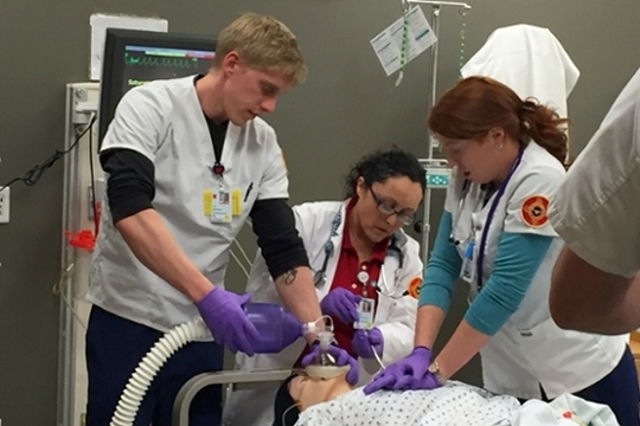
Nursing ETDs
Publication Date
1-28-2015
Abstract
Aim. The aim of this study was to explore self-efficacy and success in young adult survivors of traumatic brain injury (TBI) and provide the opportunity for participants to communicate their perceptions, thoughts, emotions, and concerns. Background. Many of those affected by TBI are young adults who are establishing their social and work lives. Young adults face challenges and choices that are pivotal in establishing a course for their lifetime. Self-efficacy theory provided the conceptual framework for the study. The TBI Self-Efficacy Questionnaire and General Self-Efficacy Scale were used to measure self-efficacy, and the Glasgow Outcomes Scale-Extended was used to measure outcomes after TBI and situate qualitative data in the context of known scales of measurement. Methods. The research was approached as a collective instrumental case study delving deeply into the complexity of each case, using ethnographic methods, in the milieu of a collaborative orientation. Ethnographic methods directed attention to the everyday lives and contexts of the participants. Triangulation with established quantitative instruments vii increased descriptive validity and strengthened reliability of the study. The collaborative orientation influenced the author to consider barriers to and facilitators of success. Findings. The context and setting of the human experience of recovery and adaptation in the 2 young adult participants at 9 and 12 months after a TBI were critically analyzed from interviews and descriptive questionnaires. The research questions evoked participants voices and focused awareness on the challenges and transformation associated with their TBI and the role of family in recovery. Self-efficacy and success theory illuminated the process of achieving success and life satisfaction after TBI. Barriers to health, independence, connectivity, mobility, and productivity were some of the challenges faced by participants. Success in navigating the barriers was found to be crucial to continuing life patterns of self-belief and confidence. Conclusions. This study comprised a needs assessment phase of collaborative research and has potential to become foundational in developing a self-management program targeted to optimizing health, self-efficacy, and success. Young adult survivors of TBI may benefit from ongoing collaborative research, improved health care access, comprehensive care planning, and educational content designed to facilitate self-efficacy and success.
Degree Name
Nursing
Level of Degree
Doctoral
Department Name
College of Nursing
First Committee Member (Chair)
Tigges, Beth
Second Committee Member
Tinkle, Mindy
Third Committee Member
Escandon, Socorro
Keywords
TBI, self-efficacy, success, young adult
Language
English
Document Type
Dissertation
Recommended Citation
Cechanowicz, Barbara. "Collaboration for Success in Young Adults with Traumatic Brain Injury." (2015). https://digitalrepository.unm.edu/nurs_etds/24
